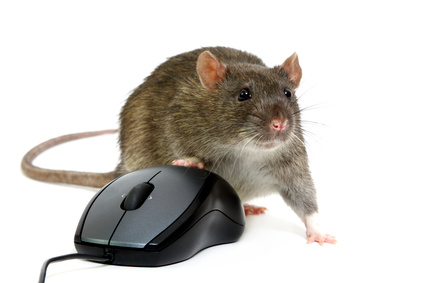It happens every year on the Monday  after Easter. A friend of mine shows up for our morning exercise group armed with a squirt gun filled with water. Smiling, and with great stealth, he walks toward the women in our group and douses them with water. He even brings an extra squirt gun for me to use (although I usually just save my squirt gun firing for home). Why does he soak women with water? Because it’s Dingus Day!
after Easter. A friend of mine shows up for our morning exercise group armed with a squirt gun filled with water. Smiling, and with great stealth, he walks toward the women in our group and douses them with water. He even brings an extra squirt gun for me to use (although I usually just save my squirt gun firing for home). Why does he soak women with water? Because it’s Dingus Day!
 after Easter. A friend of mine shows up for our morning exercise group armed with a squirt gun filled with water. Smiling, and with great stealth, he walks toward the women in our group and douses them with water. He even brings an extra squirt gun for me to use (although I usually just save my squirt gun firing for home). Why does he soak women with water? Because it’s Dingus Day!
after Easter. A friend of mine shows up for our morning exercise group armed with a squirt gun filled with water. Smiling, and with great stealth, he walks toward the women in our group and douses them with water. He even brings an extra squirt gun for me to use (although I usually just save my squirt gun firing for home). Why does he soak women with water? Because it’s Dingus Day! That’s right…you read correctly, Dingus Day. Dingus Day, also called “Wet Monday,” is a Polish holiday celebrated the Monday after Easter. On Dingus Day, men find creative ways to sprinkle women with water. (Don’t worry, the Tuesday after Easter women soak the men; unless you women want to get your revenge early.) My friend uses a squirt gun in our morning exercise group, but tells great stories about other ways to accomplish the task of soaking women. You can use a hose, a bucket, water balloons, or any other creative means available to soak another person. “Water traps” that involve water balloons dropping on the first person to open a door or drinking fountains set up to squirt the person trying to get a drink can be arranged. (Click on Smigus-Dyngus and Water Prank to see how others “accomplish the soaking.”) If your family celebrates Dingus Day, you may find yourself awaken by a glass of water poured over your head. (If you are awaken this way, don’t get angry. Just remember that “revenge is sweet.”) All in all, Dingus Day is a fun day of discovering creative ways to get someone wet. Well, that’s not true. Dingus Day is much more than just getting other people wet. After all, why would I even bring it up if that’s all it was? (If you know me, don’t answer that question). I bring it up because it’s more than just a fun day of getting men and women wet. It’s a family and community celebration of dancing, singing, and joining together. Just check out this website about the Dingus Day celebration in Buffalo, NY, the Dingus Capital of the World.
Dingus Day also has religious meaning. Sprinkling with water represents the new birth, cleansing, and purification found in Christ through His death and resurrection. In fact, the word “Dingus” can be traced back to a medieval word meaning “worthy, proper, or suitable.” In the Christian tradition, people are baptized into Christ’s death and raised up to new life–a new birth, cleansing, and purification. One Polish American has said that on Dingus Day, “our ancient ancestors ‘bickered’ with God to make us worthy (Dingus) through the waters of baptism, and were thus ‘brought back or redeemed’ by Christ.” Dingus Day celebrates the cleansing and restoration found in Christ by creatively washing (read “soaking” or “drenching”) one another with water.
That’s why I decided to write about Dingus Day here. It offers a fun family celebration that communicates the values of new life and being made whole while having a fun water battle. So, go ahead…get wet. Have the epic water battle of all time and enjoy time with your family on Dingus Day, “Wet Monday”…today!

 Psalm 23. David, the author of Psalm 23, tells us that his Shepherd “makes him lie down in green pastures” and “leads” him “beside still waters.” The word used for “lead” means “to lead someone helpless and needing guidance, to lead by the hand.” Our Shepherd knows that we, His sheep, are helpless; so, He takes us by the hand to lead us to places of nourishment, rest, and safety. The Shepherd knows the needs of His sheep and how to best provide for those needs, even when His sheep do not know or understand.
Psalm 23. David, the author of Psalm 23, tells us that his Shepherd “makes him lie down in green pastures” and “leads” him “beside still waters.” The word used for “lead” means “to lead someone helpless and needing guidance, to lead by the hand.” Our Shepherd knows that we, His sheep, are helpless; so, He takes us by the hand to lead us to places of nourishment, rest, and safety. The Shepherd knows the needs of His sheep and how to best provide for those needs, even when His sheep do not know or understand.  “cranky” with hunger or tiredness. They become irritable without time alone or lonely and moody without time with friends or family. Even as teens, our children may have a tendency to “overbook” and become overwhelmed and stressed. We need to become students of our children to learn about their limits so we can lead them in a proper balance of rest, nutrition, and activity. As they grow, they can support them in discovering how to balance those limitations more independently.
“cranky” with hunger or tiredness. They become irritable without time alone or lonely and moody without time with friends or family. Even as teens, our children may have a tendency to “overbook” and become overwhelmed and stressed. We need to become students of our children to learn about their limits so we can lead them in a proper balance of rest, nutrition, and activity. As they grow, they can support them in discovering how to balance those limitations more independently. caught up in their busy lives that they only give their children distracted attention. Distracted attention is half-hearted attention, attention split between two or more things. Parents give distracted attention when they invest their energy in a project while pretending to listen to something their child is saying. The parent can hear their child’s words, but the meaning just doesn’t register. After giving distracted attention, the parent knows that their child spoke to them, but they probably can’t remember what was said. The distracted parent often responds to their child’s statements with words like, “Oh yeah,” “OK,” or “Really?’ without really knowing what the child said. Children who receive distracted attention on a regular basis feel insignificant and unimportant. Eventually, they will quit coming to the parent. And, they will learn to give us the same distracted attention the parent gives them.
caught up in their busy lives that they only give their children distracted attention. Distracted attention is half-hearted attention, attention split between two or more things. Parents give distracted attention when they invest their energy in a project while pretending to listen to something their child is saying. The parent can hear their child’s words, but the meaning just doesn’t register. After giving distracted attention, the parent knows that their child spoke to them, but they probably can’t remember what was said. The distracted parent often responds to their child’s statements with words like, “Oh yeah,” “OK,” or “Really?’ without really knowing what the child said. Children who receive distracted attention on a regular basis feel insignificant and unimportant. Eventually, they will quit coming to the parent. And, they will learn to give us the same distracted attention the parent gives them.  admit. After all, which is more important: our children or the game, our children or a hobby, our children or the lawn? What we prioritize receives our undivided attention. Children deserve our priority.
admit. After all, which is more important: our children or the game, our children or a hobby, our children or the lawn? What we prioritize receives our undivided attention. Children deserve our priority. mouse as a tiny furry animal; today a mouse is a near-obsolete piece of technology used with a desktop computer. I remember listening to records-the flat ones that required a record player with a needle to play. Today, we simply download music to our IPhones and put head phones in our ears to shut out the world. These changes have resulted in some lost arts. For instance, storytelling seems to be replaced with TV. Imaginative games of cops and robbers or cowboys and Indians are replaced by video games like “Assassin.” And, when was the last time you hand wrote a letter rather than using email, twitter, texting, or Word?
mouse as a tiny furry animal; today a mouse is a near-obsolete piece of technology used with a desktop computer. I remember listening to records-the flat ones that required a record player with a needle to play. Today, we simply download music to our IPhones and put head phones in our ears to shut out the world. These changes have resulted in some lost arts. For instance, storytelling seems to be replaced with TV. Imaginative games of cops and robbers or cowboys and Indians are replaced by video games like “Assassin.” And, when was the last time you hand wrote a letter rather than using email, twitter, texting, or Word?
 a home filled with loving relationships, joyful celebrations, and gracious interactions, I don’t want to be accused of prejudice or being “too soft.” So, let me just offer some advice (perhaps, tongue in cheek) on how to make your family a truly miserable place–the kind of place children can’t wait to leave when they turn 18…the kind of place that causes spouses to fantasize of creative ways to escape.
a home filled with loving relationships, joyful celebrations, and gracious interactions, I don’t want to be accused of prejudice or being “too soft.” So, let me just offer some advice (perhaps, tongue in cheek) on how to make your family a truly miserable place–the kind of place children can’t wait to leave when they turn 18…the kind of place that causes spouses to fantasize of creative ways to escape. 
 teach us to avoid harmful situations and learn from our mistakes. They allow us to express needs and seek out support. They help us learn about the world and people around us (
teach us to avoid harmful situations and learn from our mistakes. They allow us to express needs and seek out support. They help us learn about the world and people around us ( made several deposits into our “Family Bank of Honor.” Everything just seemed to flow smoothly…very smoothly. I complimented my wife’s new shirt and told her how nice she looked…two deposits into the “Family Bank of Honor.” During a commercial, I got myself a drink and grabbed one up for my wife as well…deposit number two. I asked my daughter, very politely I might add, if she could start the dishwasher…deposit number three for politeness. And, my daughter started the dishwasher without complaining…deposit numbers four and five. You get the idea. We talked and joked around. We spoke politely, did considerate things for one another, and enjoyed physical closeness. Even bedtime was marked by loving “goodnights” and hugs…deposit, deposit, deposit. Overall, we had a great family evening filled with loving, honoring deposits into our “Family Bank of Honor.” By time we finally went to bed, I bet we had accrued over 50 deposits into the “Family Honor Account.” I fell asleep feeling good, even a little cocky, about the honor we had accrued in the “Family Bank of Honor.” What a family man, Mr. Honor himself, a loving husband and father, who has instilled an ongoing culture of honor into his family.
made several deposits into our “Family Bank of Honor.” Everything just seemed to flow smoothly…very smoothly. I complimented my wife’s new shirt and told her how nice she looked…two deposits into the “Family Bank of Honor.” During a commercial, I got myself a drink and grabbed one up for my wife as well…deposit number two. I asked my daughter, very politely I might add, if she could start the dishwasher…deposit number three for politeness. And, my daughter started the dishwasher without complaining…deposit numbers four and five. You get the idea. We talked and joked around. We spoke politely, did considerate things for one another, and enjoyed physical closeness. Even bedtime was marked by loving “goodnights” and hugs…deposit, deposit, deposit. Overall, we had a great family evening filled with loving, honoring deposits into our “Family Bank of Honor.” By time we finally went to bed, I bet we had accrued over 50 deposits into the “Family Honor Account.” I fell asleep feeling good, even a little cocky, about the honor we had accrued in the “Family Bank of Honor.” What a family man, Mr. Honor himself, a loving husband and father, who has instilled an ongoing culture of honor into his family. Withdrawal again…at least ten since I gave them “the look,” a harsh tone, and an unwarranted demand. That’s a total of 19 withdrawals and I hadn’t even finished breakfast. I eventually left for my morning activities, spent some time alone, and came home in a better mood; but not before making significant withdrawals from the “Family Bank of Honor.” It seems that the deposits of yesterday barely covered the withdrawals of today.
Withdrawal again…at least ten since I gave them “the look,” a harsh tone, and an unwarranted demand. That’s a total of 19 withdrawals and I hadn’t even finished breakfast. I eventually left for my morning activities, spent some time alone, and came home in a better mood; but not before making significant withdrawals from the “Family Bank of Honor.” It seems that the deposits of yesterday barely covered the withdrawals of today.